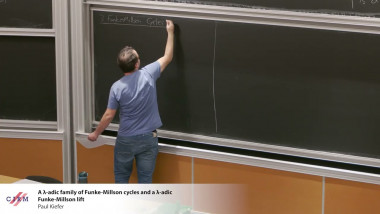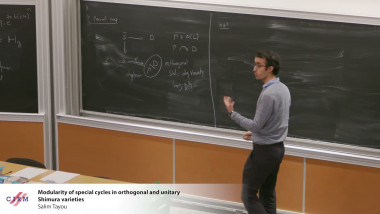
A $\lambda$-adic family of Funke-Millson cycles and a $\lambda$-adic Funke-Millson lift
De Paul Kiefer

Modularity of special cycles in orthogonal and unitary Shimura varieties
De Salim Tayou
Apparaît dans la collection : Prime numbers and arithmetic randomness / Nombres premiers et aléa arithmétique
In this talk, I will discuss new bounds on constrained sets of fractions. Specifically, I will discuss the answer to the following question, which arises in several areas of number theory: For an integer $k\geq2$, consider the set of $k$-tuples of reduced fractions $\frac{a1}{q1} , . . . , \frac{ak}{qk} \in I$, where $I$ is an interval around 0. How many $k$-tuples are there with $\sum_{i} \frac{ai}{qi} \in \mathbb{Z} $? When $k$ is even, the answer is well-known: the main contribution to the number of solutions comes from “diagonal” terms, where the fractions $\frac{ai}{qi}$ cancel in pairs. When $k$ is odd, the answer is much more mysterious! In joint work with Bloom, we prove a near-optimal upper bound on this problem when $k$ is odd. I will also discuss applications of this problem to estimating moments of the distributions of primes and reduced residues.
